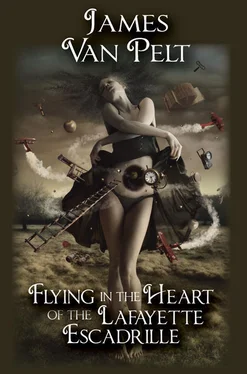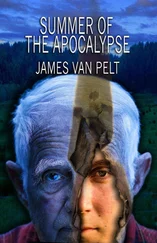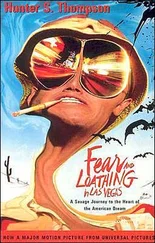“I expected to find you here,” she said.
I touched her hand. “That’s good work.”
She held it up to herself, fingers straight. “They hurt all the time, you know.”
I didn’t, but I said I did.
The bartender asked her if she wanted something, and she ordered a beer. When he turned away, she said, “Enzyme treatments make it palatable—even my digestive system was changed—but they drink it too cold.”
“Mine too. When I started, all the food was shunted to a storage stomach. I emptied it after meals, but they decided that was too cumbersome—shipping food to me twice a month—so I have earth-analog bacteria implants and a processor that converts it for me.”
“Ouch,” she said. “All that biologically?”
“Most. I’d attract a lot of attention in an Earth hospital if they X-rayed my insides, though.”
She laughed. I admired the perfection of her guise. No evidence of vestigial scales. The missing limbs. The loss of height. The loss of eye stalks. Trosfrilla biotechs must be true artists.
The door opened and a dozen men and women poured into the bar. A coed softball team, wearing black and yellow T-shirts, talking excitedly.
I didn’t want her to go again. The players settled around two tables, calling for beer and pretzels. One of them plugged money into a juke box, and the Sleepy Jean suddenly became noisy and too crowded.
“Can we go someplace quiet?” I asked.
She nodded. What thoughts were going through her Trosfrilla brain? We were no longer enemies, technically, but she could learn nothing about Earth people from me. I could learn nothing from her. Our conversation made no scientific sense. We’d gain nothing from it. She was not a human woman. I could take no readings or plant a tag. Still, I wanted to stay with her.
She followed me in her car to my apartment. I turned the equipment off before she entered. No point in letting my superiors know I’d entertained a Trofrillan operative.
I said, “Can I get you something to drink?”
Trudy moved into my apartment unlike anyone who’d entered before. She dropped the human role; her feet slid across the carpet, more like her own gait, and her hands went to her jaw line that she rubbed hard. She said, “Water is fine, if it’s warm.” The heels of her hands ground into the side of her face. “It hurts all the time, here. I’ll be glad to go home.”
I poured the water and one for myself. Through the door I could see her examining my things. She pushed aside an art print to study the thin plate of scanning equipment behind.
“What’s your range?” she called.
“About fifty feet.”
She grunted and let the print swing back into place.
“Do you have any music?” she said. “Real music?”
I had several CD’s of recordings I’d made from Lasarént . The stereo couldn’t do the full tonal range justice, but it captured the mutating harmonics and asynchronous rhythms well. We sat beside each other on the couch. Through my picture window the sun set, a red sunset, and I smiled at that. Trudy stayed motionless, her fingers curled on her thighs, her wrists bent slightly, like a Preying Mantis. I smelled nothing Trosfrillan on her, only shampoo and perfume.
Around us the human city teemed with its activities. In the building, doors slammed—I felt their distant echoes—feet pattered down the hallways. Outside, traffic pushed past, all individually guided, most cars holding only one person. Busy. Horns and engine noise beat against the glass. A siren whining. But in my apartment, the red sun bathed everything warmly, and the music currents swept by, gentle and chaotic, like the river beneath the Sleepy Jean, like the far Hydrash . My scanning equipment was off. My position was no longer clinical. I wasn’t collecting.
Trudy rubbed her face again. Underneath the mock skin (Beautifully engineered! Only a well equipped lab that knew what to look for would be able to detect its extraterrestrial origin), I guessed her reshaped skull ached along its alien lines. She grimaced, a very human gesture of pain.
“Here, let me,” I said. In the kitchen, I filled a pan with warm water and found a washcloth. She watched me soak the cloth, then press out the excess moisture.
“I don’t think we should,” she said. Her hand rested on my forearm. “Thank you for the thought, though.”
Still, she didn’t resist when I placed the cloth against her cheek, let the warmth rest there for a moment, and then pushed my thumbs gently into the muscles. Her dark eyes locked on my own. When I went back to the bowl to reheat the cloth, she sighed and shut her eyes. I straddled her on the couch so I could massage both sides of her face equally. She moved her head against the pressure, so I could tell where she wanted it. Gradually, the apartment darkened, and the red sunset behind me went from vermillion to purple to sable. My thumbs kneaded her cheek bones, pushed into the ridge of her jawbone, circled under her ears—the skin caressed the covered bones, a whole tiny landscape of knobs and valleys and smooth plains, over and over.
She said, “Do you miss winter on Lasarént? ”
My back ached with memory’s loss. The den filled and dark and close. The hormonal changes engendered in the moist soil and shared air, and the timeless eruption of tendrils in my back, burrowing through the mud, finding other tendrils, growing and intertwining until we joined, all of us, in one organism; one birthing, breathing, thinking organism that waited out the winter in warmth and communion and unity. The integration.
I couldn’t say anything, but swallowed the human sob in my throat while my thumbs orbited endlessly on her face.
Her hands went to my shirt, unbuttoning. In the darkness I saw her eyes glinting, staring again at me. I massaged the skull above the ears; her hair tickled my wrists. She held my ribs and pulled me closer, her breath hot on my chest, then she reached around and put her hands on my back.
“Here?” she said, her voice mellow against the music.
“Higher,” I said, and moved down so she could reach.
The Trosfrilla know our anatomy; they know us. One can’t go to war for generations without learning of the enemy, and she knew. She knew. Her fingers traveled up and down beside my back bone, digging until she found the buried tendril-pods, chemically suppressed, but still there, sensitive to stimulation, and she rubbed them gently.
When the music ended, I fell away, exhausted.
We breathed deeply in the now silent room, city lights glittering beyond the window, the traffic slowed to its night time murmur.
“Thank you,” she said.
“Does it hurt as bad?” I touched the side of her face.
She didn’t look at me. “Not as bad. And you?”
Of course there had been incomplete satisfaction in what she’d done, not like a full nesting, but she knew the tendril-pods were there. She’d touched them and reminded them they were alive.
“That felt good,” I said. “Thanks.”
Trudy rose from the couch, and I knew she was leaving.
She got to the door before I said, “Will I see you again?”
By the dim city light, she paused, her back to me—things remained that way for many heart beats—then she shrugged.
“Why?” she said.
I tried not to weep, my alien form overwhelming me with reflexive emotion, and I suddenly understood something human.
“Don’t mind me,” I said. “It’s all blather.”
CLASSROOM OF THE LIVING DEAD
They came for me on a Monday morning when I was too exhausted to hear the back door caving in. Only when their hands were on me did I realize that all was lost, but the dead didn’t consume me. They dragged me out of the house, shambled the three blocks to the school, holding me tight in their rotted hands, shuffling in that loose-limbed, broken way that they had, until they’d pulled me up the stairs, through the front doors with their glass knocked out, down the hall strewn with books and abandoned backpacks, until we came to my room.
Читать дальше










